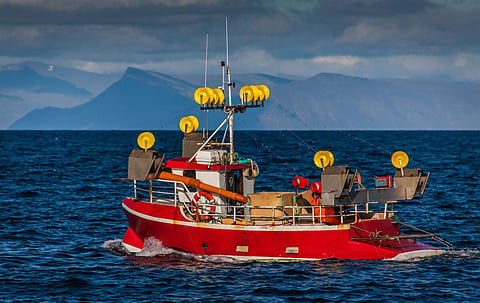

The Fisheries and Oceans Canada (DFO) closed the mackerel fishery as well as the spring herring fishery in 2022; as a matter of fact, the Canadian Coast Guard, Joyce Murray, stated that the management actions put in place to protect the stock were not enough. Now, the Fish Food and Allied Workers Union (FFAW-Unifor) cite higher numbers observed by fishermen than DFO estimates and is urging to reopen the Atlantic mackerel fishery this year.
Nevertheless, FFAW-Unifor members say that contrary to assessments claiming the stock is endangered, fishermen have witnessed an abundance of mackerel. For that reason, the Union is calling on members of the Atlantic Mackerel Advisory Committee (AMAC) to listen their reports.
According to FFAW-Unifor President, Greg Pretty, they just have encountered reality. Fishermen allege that they have found a lot of mackerel while catching other species and during voluntary campaigns run by the Union. "It's one thing to shut a fishery down if it's not doing well. But while the mackerel fishery was under moratorium in 2022, folks witnessed enormous abundance with wide distribution and year classes and there are even dozens of reports of sightings through the fall into January and February," he said. "These observations are entirely contradictory to DFO Science's narrative that the stock is failing."
FFAW-Unifor members who catch mackerel in the area voluntarily provide the Union with data for mackerel surveys. These facts, according to Erin Carruthers, FFAW-Unifor's Scientific Director, has created substantial evidence of population abundance.
FFAW-Unifor's urging to reopen the mackerel fishery based on harvester data comes just days after DFO conducted a technical update on Feb. 27 for the snow crab fishery. The report remarks on the health of the stock, an update that relied entirely on harvester data because DFO was unable to conduct its multi-species trawl surveys.
Such a technical update, FFAW-Unifor said shortly after the DFO update, highlighted the "value and importance of collaborative research."
"The snow crab post-season survey is a success story that should serve as a model. In other fisheries research programs, such as mackerel and boreal shrimp could work." Pretty said. The FFAW-Unifor members want more collaborative opportunities, in that one such as other species like redfish, and northern shrimp. Also, the Union remarks that the government and DFO are not prioritizing expanding these collaborative opportunities.
"I recognize many harvesters depend on these fisheries. I will continue working with them and fishing groups from across Atlantic Canada and Quebec to ensure the best outcomes for these stocks and the people who depend on them." Said Murray.
Finally, as a part of its call to reopen the mackerel fishery FFAW-Unifor' has taken more action. The Union has created a campaign page and launched a petition to call public attention to this issue.
